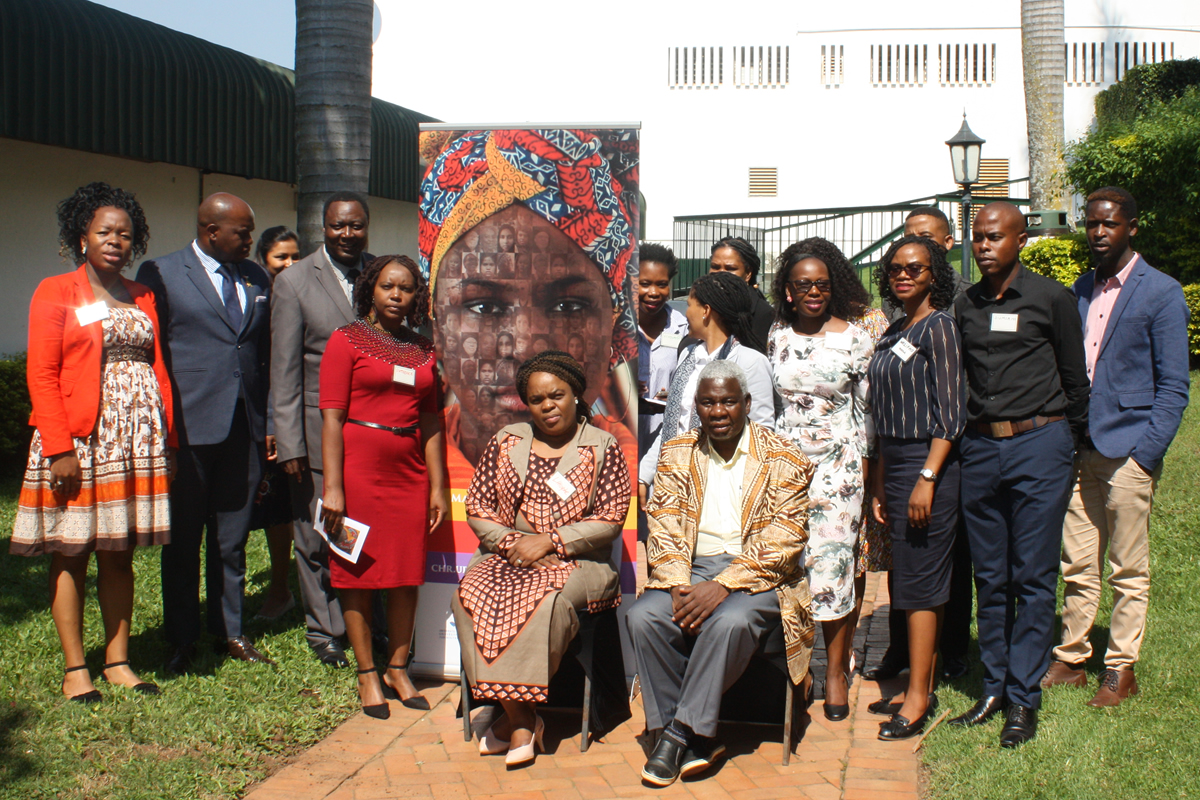The Centre for Human Rights, University of Pretoria, in collaboration with the Eswatini Ministry of Justice and Constitutional Affairs, organised a state party reporting workshop on the African Charter on Human and Peoples’ Rights (African Charter) and the Protocol to the African Charter on Human and Peoples’ Rights on the Rights of Women in Africa (Maputo Protocol). The workshop was held in Eswatini from the 15 to 17 April 2019.
The major objective of the workshop was to build the capacity of state party representatives involved in state party reporting and drafting process, towards fulfilling Eswatini’s reporting obligation to the African Commission under article 62 of the African Charter and article 26 of the Maputo Protocol. Present at the workshop were representatives of the state government ministries including the Ministry of Justice, Ministry of Foreign Affairs and International Cooperation, Department of Gender and Family Issues and the Department of Social Welfare of the Deputy Prime Ministers Office, as well as representatives of the National Human Rights Commission (NHRIs) and Civil Society Organisations (CSOs).
The Principal Secretary, Mrs Lorraine Hlophe, kick-started the workshop on behalf of the Honourable Minister of Justice and Constitutional Affairs, Mrs Pholile Dlamini-Shakantu. According to her, this workshop could not have come at a more opportune time for Eswatini. The kingdom is steadfastly working to align its national laws and policies in accordance with its international and regional human rights obligations, as shown by the enactment of the Sexual Offences and Domestic Violence Bill (SODV Bill), recently passed into law in July 2018. With the new commitment of the government towards fulfilling its state party reporting obligations, it has established a national coordinating mechanism for state reporting in Eswatini to ensure that state party reports are submitted in a timely manner.
Consequently, the workshop proved to be a crucial knowledge sharing and capacity development platform in preparation for the drafting and submission of Eswatini’s state party report to the African Commission. It was also fundamental given that Eswatini had been lagging behind in its reporting obligations to the African Commission, with its initial report having been submitted in 2000 with no periodic reports submitted thereafter.
The workshop itself was run by Prof Michelo Hansungule, Patience Mpani Mungwari, Dr Ashwanee Budoo and Tomi Okeowo, in which participants were introduced to the African Regional Human Rights System focusing on the African Charter and its protocols. Key topics discussed include the substantive provisions of the African Charter and its protocols, state party reporting obligations and the guidelines for state party reporting under the African Charter and the Maputo Protocol. Also engaging were the group discussions on the human rights situation in Eswatini wherein issues pertaining to women’s rights, marriage, political participation and land ownership were highlighted and discussed with regards to the provisions of the African Charter and Maputo Protocol. A significant highlight of the workshop was seeing the participants put into practice all they had been taught on state party reporting and drafting in the form of a mock presentation of a state report to the African Commission. This exercise was phenomenal, testing the participants’ knowledge of the drafting and state reporting process, their ability to tease out key issues in line with the provisions of the African Charter and Maputo Protocol and to also adhere to their reporting obligations in a timely manner whilst paying attention to key principles of collaboration and inclusive participation.
In conclusion, the commitment of all the participants to the drafting and eventual submission of Eswatini’s state party report to the African Commission was very evident at the workshop. Hence, the Centre for Human Rights looks forward to continued engagement and collaboration with the state party representatives and report drafting committee of Eswatini in the actual drafting and submission of Eswatini’s state party report on the African Charter and the Maputo Protocol.
For more information, please contact:


